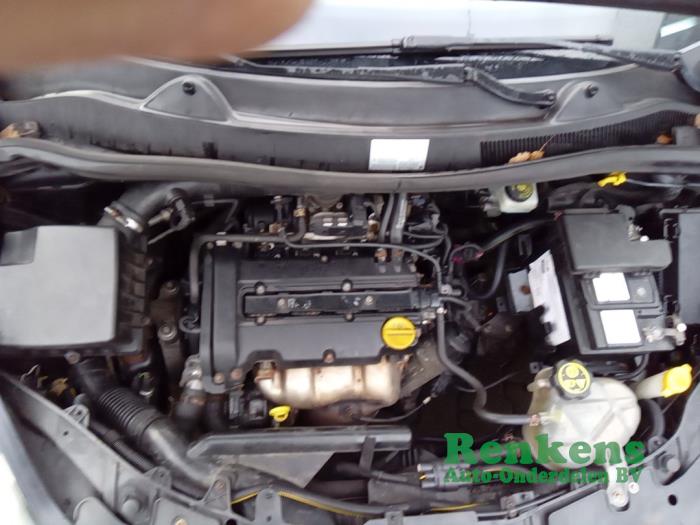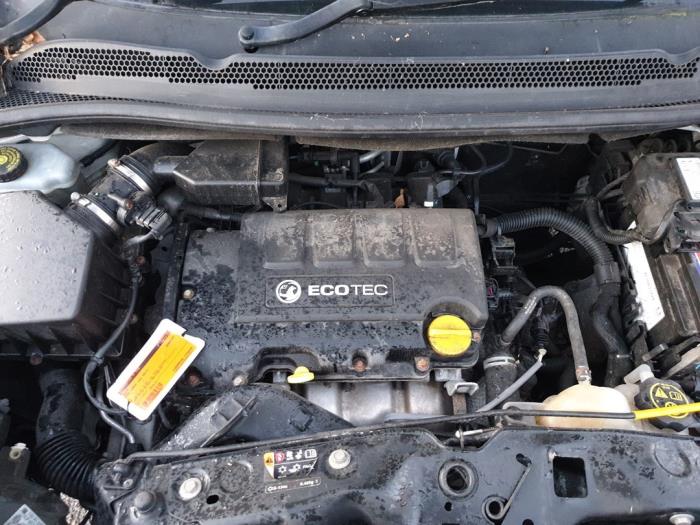Engine Buying Professional Tips on Picking the Right Engine for Your Specific Demands
Choosing the right engine for your specific requirements entails a complicated interplay of variables that go beyond plain horse power numbers. By diving into the complexities of power versus efficiency, examining gas scores, and budgeting for long-lasting costs, one can really maximize their engine selection.
Power Vs. Efficiency: Locating the Equilibrium
When choosing an engine, it is crucial to strike an equilibrium in between power and performance to meet your details demands successfully. Power describes the engine's capacity to generate power for propulsion, identifying variables like velocity, pulling ability, and overall performance - Opel Corsa 1.4 Engine Price. On the other hand, effectiveness connects to just how well the engine makes use of fuel to generate power, impacting aspects such as gas economic climate and ecological kindness
Attaining the right equilibrium between power and efficiency is important since an engine that is also effective might consume too much fuel, resulting in greater operating expense and unnecessary strain on the environment. Alternatively, an engine that prioritizes efficiency over power might result in sluggish performance, especially popular circumstances like pulling heavy tons or driving uphill.
To make an educated decision, consider aspects such as your typical driving problems, the designated usage of the car, and your personal preferences. By evaluating your demands and top priorities, you can pick an engine that strikes the perfect balance in between power and effectiveness, making certain optimal performance while decreasing ecological influence and operating expense.
Understanding Engine Size and Kind
To better refine the selection procedure of an engine that strikes the optimum equilibrium in between power and effectiveness, it is crucial to look into the ins and outs of recognizing engine dimension and type. Engine dimension describes the total volume of air and fuel that can be pushed with the engine cylinders. It is typically gauged in litres or cubic centimeters. Larger engine dimensions normally cause more power outcome yet can also lead to reduced gas effectiveness. On the various other hand, smaller sized engine sizes are typically more fuel-efficient however might sacrifice some power.
In addition, engine type plays a critical duty in determining the performance features of an engine. Usual engine types include inline engines, V engines, and rotating engines, each with its one-of-a-kind benefits and drawbacks. The engine type affects elements such as the engine's size, weight circulation, and power distribution. Comprehending the interplay between engine size and type is essential in picking an engine that straightens with your specific needs and top priorities, whether it be power, performance, or an equilibrium of both.

Consider Your Vehicle's Requirements
Considering your automobile's demands is an essential action in the engine choice process to make sure optimal performance and performance. It is vital to assess variables such as the intended use the vehicle, its weight, lugging capacity, and gas efficiency needs. For instance, if you are looking for an engine for a durable vehicle that will certainly be utilized for towing, you will certainly require a powerful engine with high torque capacities. On the other hand, if you are choosing an engine for a compact cars and truck largely used for city travelling, fuel efficiency may be an extra essential factor to consider.
In addition, the terrain on which the vehicle will largely run should affect your engine selection. If you regularly drive in sloping or hilly areas, a durable engine with excellent climbing up power will be needed. On the other hand, for flat surfaces, a much more fuel-efficient engine might be adequate. By aligning the engine specs with your vehicle's requirements, you can make certain that your automobile runs effectively and meets your performance assumptions.
Reviewing Gas Performance Rankings
Analyzing fuel efficiency scores is an essential element of picking the right engine for your vehicle, making certain expense financial savings and environmental sustainability. Fuel effectiveness ratings, usually determined in miles per gallon (MPG) for gasoline engines or kilowatt-hours per 100 miles (kWh/100 miles) for electrical engines, show exactly how much a car can take a trip on a specific quantity of fuel or electrical power. i loved this Greater MPG or reduced kWh/100 miles worths symbolize extra effective engines, translating to lowered gas expenses and reduced carbon emissions.
When reviewing gas effectiveness scores, consider your driving routines and needs. A highly fuel-efficient engine can result in substantial financial savings over time if you commute long ranges daily. In addition, contrast various engine alternatives within the very same automobile class to determine one of the most economical choice. Factors such as engine dimension, weight, aerodynamics, and hybrid or electric capacities can all influence gas efficiency.
Budgeting for Long-Term Expenses
Purposefully planning for lasting expenses is vital when picking an engine, making sure monetary sustainability over the automobile's lifespan. While the first acquisition cost of an engine is a considerable variable, it is important to consider the lasting expenses connected with upkeep, fixings, and fuel consumption. Going with an extra fuel-efficient engine might have a greater upfront cost but can cause considerable cost savings over time. Normal upkeep, such as oil adjustments, filter substitutes, and tune-ups, is necessary to why not try these out keep the engine running smoothly and successfully, decreasing the danger of pricey repair services down the line.
In addition, looking into the availability and price of substitute parts for the selected engine is vital in budget plan preparation. Engines with readily offered and cost effective parts can considerably impact lasting upkeep costs. Additionally, taking into consideration the engine's longevity and anticipated life expectancy can help stay clear of unforeseen substitute prices in the future. By thoroughly budgeting for these long-lasting expenses and factoring them into the decision-making procedure, people can pick an engine that not just meets their prompt needs but also stays affordable throughout its life-span.
Verdict
To conclude, picking the best engine for your details requirements calls for stabilizing power and effectiveness, comprehending engine size and kind, considering your try this site car's needs, evaluating gas effectiveness rankings, and budgeting for long-term costs. By carefully thinking about these elements, you can guarantee that you select an engine that satisfies your requirements and gives optimal efficiency for your automobile.
To further improve the choice procedure of an engine that strikes the optimal equilibrium in between power and efficiency, it is essential to dig right into the complexities of recognizing engine size and kind. Engine dimension refers to the overall quantity of air and fuel that can be pushed through the engine cylinders. Usual engine types include inline engines, V engines, and rotating engines, each with its special advantages and disadvantages. Recognizing the interplay in between engine dimension and kind is important in picking an engine that straightens with your certain requirements and concerns, whether it be power, effectiveness, or a balance of both.

Comments on “Update Your Experience: Opel Corsa 1.4 Engine Price Options Galore at Car Components Depot”